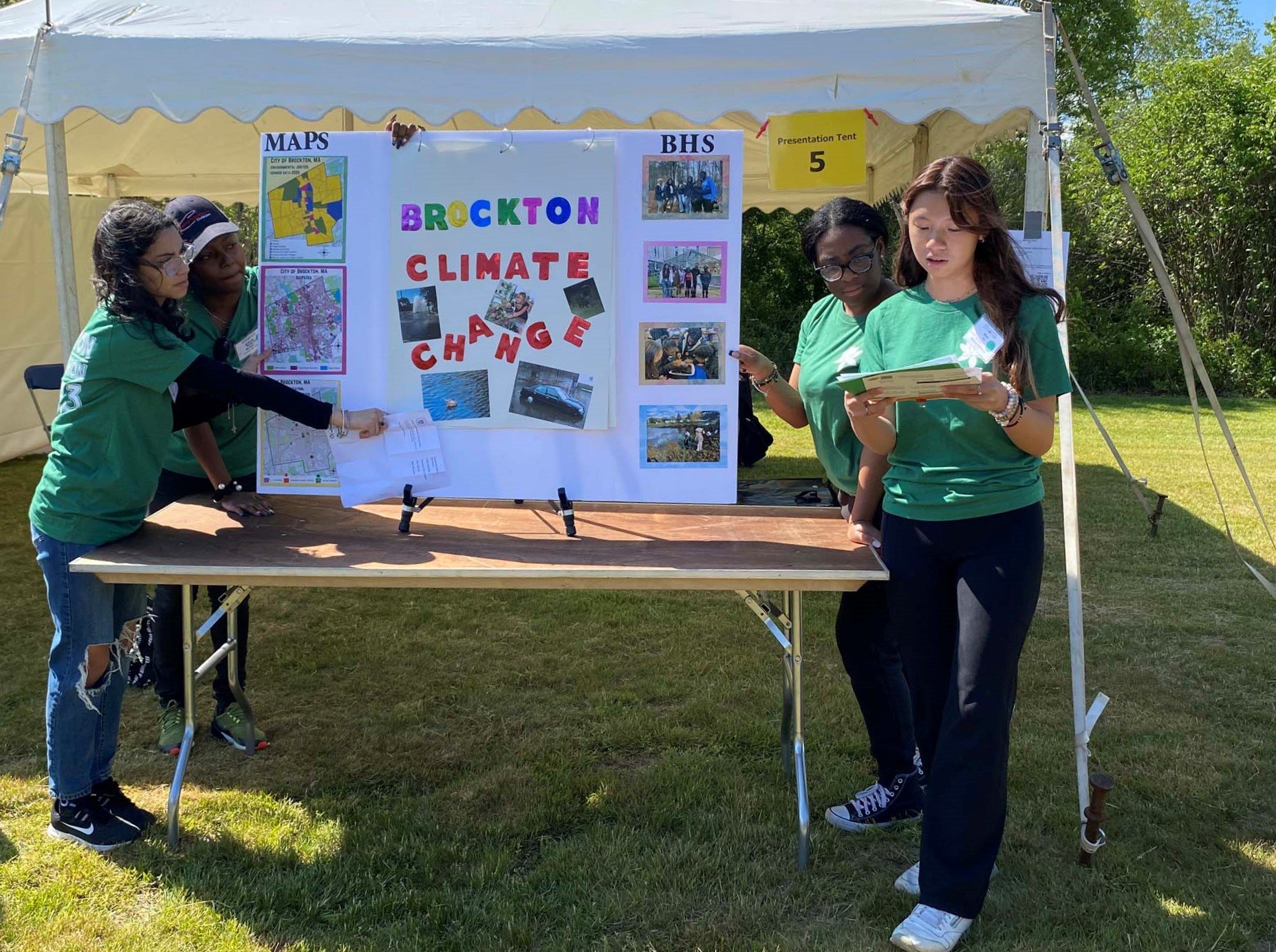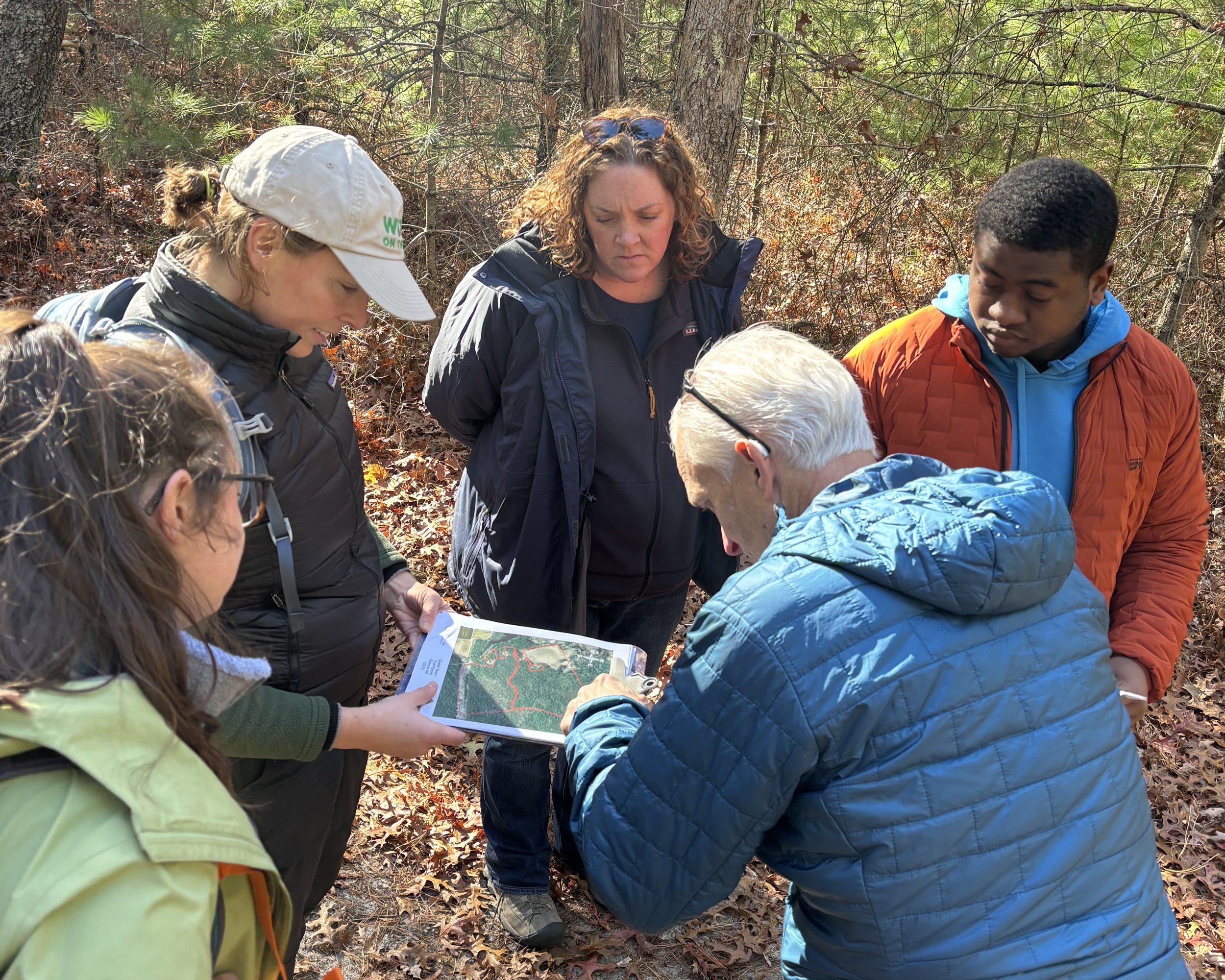***
UPDATE: Thanks to the generosity of the Brockton and Wildlands communities, our Giving Tuesday campaign met its goal, raising $3,000 for this year’s Brockton High Envirothon Team!
The funds will help Brockton High School students find and follow their passion for the environment through weekly meetings and field trips, including to the Massachusetts Envirothon in May.
“We are looking forward to having new materials in the classroom to engage our students in hands-on learning and exploration,” said Wildlands Programming Coordinator Amy Burt, who co-coaches Brockton High Envirothon with environmental educators at Manomet Conservation Sciences. “Our students’ access to the natural world will be enhanced and expanded due to your support. Thank you!“
Thank you to all who donated! Learn more about our campaign below, and about Brockton High Envirothon at wildlandstrust.org/envirothon.
***
By Thomas Patti, Communications Coordinator
Wildlands Trust believes that the natural health and beauty of Southeastern Massachusetts can only persist with an educated and empowered youth. For 10 years, Wildlands has coached and sponsored the Brockton High School Envirothon Team to prepare the next generation of local conservation champions. We need your help so this program can continue to advance environmental awareness, leadership, equity, and resilience in our region’s largest and most diverse city.
Since 2015, in collaboration with the Brockton High School science department and environmental educators at Manomet, Wildlands has trained dedicated cohorts of Brockton students for the Massachusetts Envirothon, an annual statewide competition "emphasizing hands-on, team-oriented problem solving and community involvement that prepares young people for environmental careers and active citizenship.” The Brockton High School Envirothon Team has delivered impressive performances over the years, including fifth place overall in 2015, first place in the Current Issue category in 2018, and the Community Research Award in 2022.
> Donate to support Brockton High Envirothon here.
The Envirothon Team meets weekly after school to build knowledge and skills assessed during the spring competition’s “ecostations” in forest, soils, wildlife, and water. Additionally, the team completes and presents a community action project around a Current Issue, which this year is “Forest Stewardship: Resilience for a Changing Climate.”
This year’s Brockton High Envirothon Team studies a water sample from a local pond.
In total, the Brockton High School Envirothon Team has engaged well over 100 students in natural resource education and community service. Many have continued in the conservation field through college and beyond.
Testimonials
Don’t believe us about the real-world impact of Brockton High Envirothon and our other youth programs? Take it from the kids themselves, many of whom have gone on to pursue studies and careers in the conservation field.
Nicole Mejia participated in both the Brockton High School Envirothon Team and the Brockton Green Team, Wildlands’ summer service-learning program, from 2016 to 2018. Now, Nicole is earning her PhD in Ecology and Evolutionary Biology at Cornell University, where she studies developmental factors of birds’ response to climate change. She credits Envirothon and Green Team as formative experiences in her personal, academic, and professional journey.
“The time I spent on the Envirothon Team was life-changing,” Nicole said. “Getting to interact with state scientists, learn new things about the Brockton community, and have a group of peers who cared as much about the environment as I did were some of my favorite parts. It is such an important program for students coming from Brockton, who may not have access to the outdoors but do feel that passion for conservation and nature.”
Alyce Watts participated in Envirothon from 2018 to 2022 and Green Team in 2019. She joined Envirothon “to learn about aspects of the environment that I was really interested in, but otherwise wouldn't have learned.” Alyce is now a sophomore at Colorado College, where she studies Organismal Biology & Ecology.
“The skills I gained in Envirothon have been priceless for how I've developed as a student since graduating Brockton High,” Alyce said. “The confidence I have in my ability to take a leadership role as well as in presenting work that I have done are heavily attributed to the work we did in Envirothon. My experiences in Envirothon encouraged me to be more ambitious in the goals I have set for my future, as it opened my eyes to career options I didn't know existed prior to my time in the club.”
Lily Green, Science Educator at Manomet Conservation Sciences, may know better than anyone the importance of Brockton High Envirothon. As a participant in 2014-15 and a coach since 2023, Lily has experienced the program’s benefits from multiple perspectives.
“As a student, Envirothon strengthened my interest I started to have from the regular school curriculum and gave me time to dive deeper into different aspects of sustainability,” Lily said. “The rigorous school day curriculum is tight, so it’s great to give new generations of Brockton youth a real-world experience and a chance to make an impact.”
---
Support the Brockton High School Envirothon Team so more students can find and pursue their passion for the environment—and in turn, defend the natural resources that uplift our communities. The program’s expenses are modest, including weekly snacks, teaching materials, and field trips, but its impact is large, shaping the next generation of conservation leaders in Southeastern Massachusetts and beyond. Learn more & donate here.














